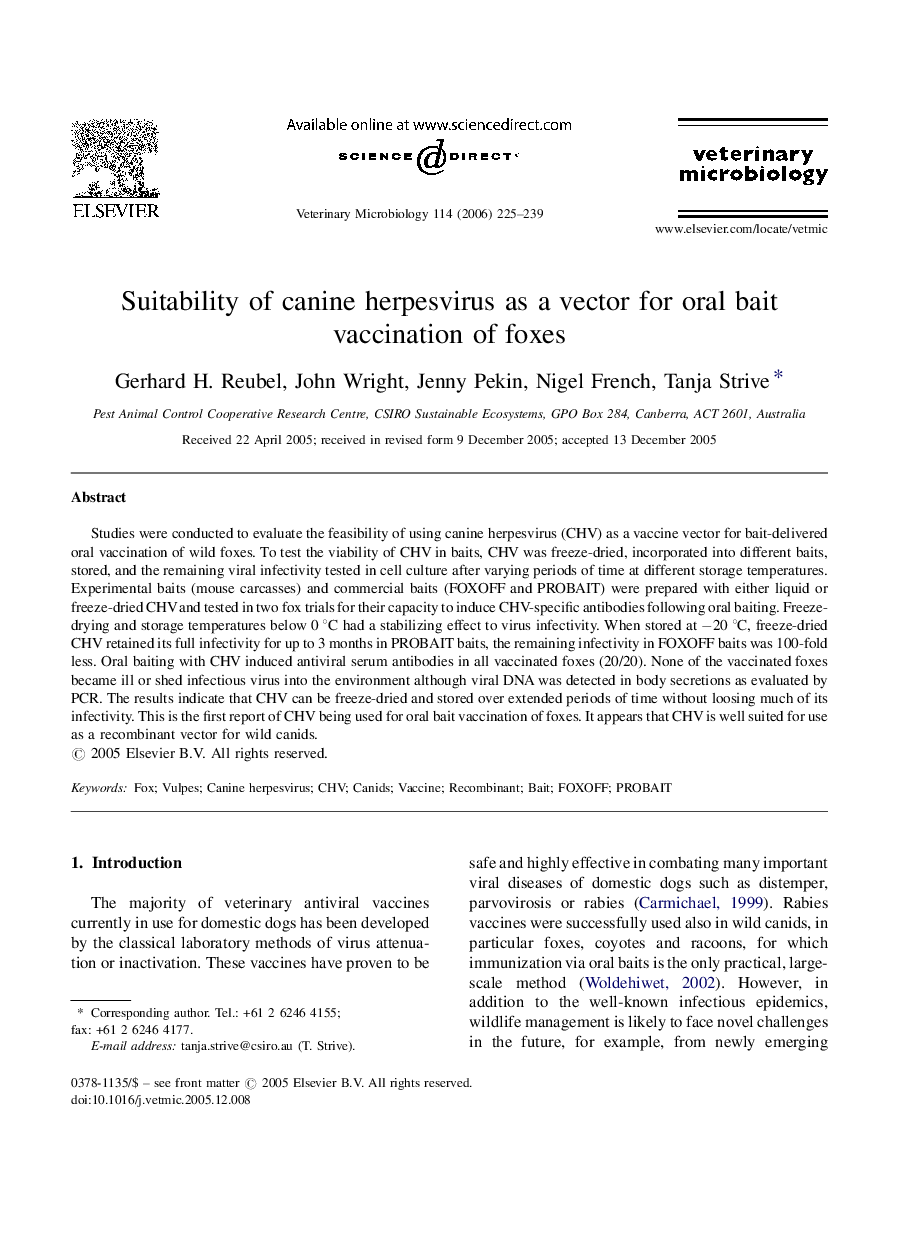| Article ID | Journal | Published Year | Pages | File Type |
|---|---|---|---|---|
| 2469561 | Veterinary Microbiology | 2006 | 15 Pages |
Studies were conducted to evaluate the feasibility of using canine herpesvirus (CHV) as a vaccine vector for bait-delivered oral vaccination of wild foxes. To test the viability of CHV in baits, CHV was freeze-dried, incorporated into different baits, stored, and the remaining viral infectivity tested in cell culture after varying periods of time at different storage temperatures. Experimental baits (mouse carcasses) and commercial baits (FOXOFF and PROBAIT) were prepared with either liquid or freeze-dried CHV and tested in two fox trials for their capacity to induce CHV-specific antibodies following oral baiting. Freeze-drying and storage temperatures below 0 °C had a stabilizing effect to virus infectivity. When stored at −20 °C, freeze-dried CHV retained its full infectivity for up to 3 months in PROBAIT baits, the remaining infectivity in FOXOFF baits was 100-fold less. Oral baiting with CHV induced antiviral serum antibodies in all vaccinated foxes (20/20). None of the vaccinated foxes became ill or shed infectious virus into the environment although viral DNA was detected in body secretions as evaluated by PCR. The results indicate that CHV can be freeze-dried and stored over extended periods of time without loosing much of its infectivity. This is the first report of CHV being used for oral bait vaccination of foxes. It appears that CHV is well suited for use as a recombinant vector for wild canids.
